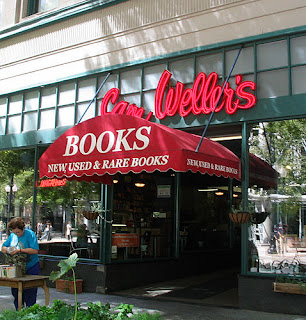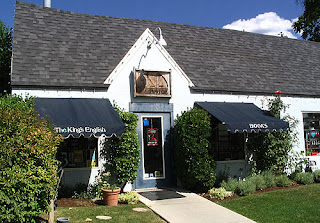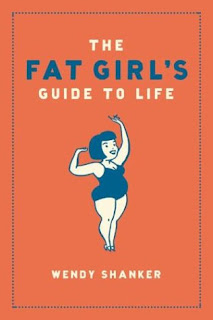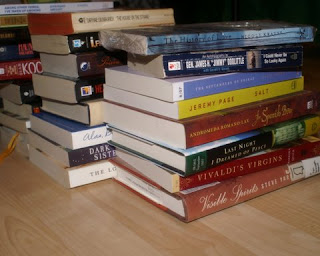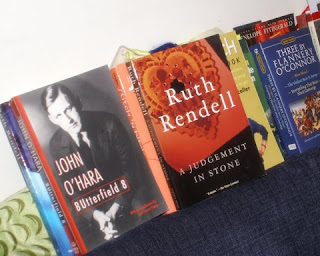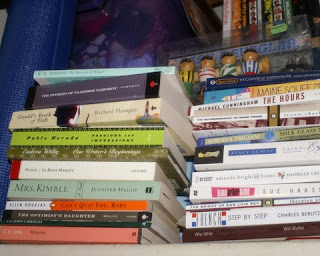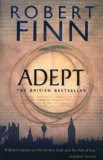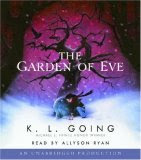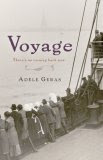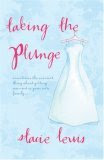Interviewed by
Heather F.Gabrielle Zevin was born in New York in 1977. She is an only child which is good practice for writing - both require an aptitude for being alone. Since graduating from Harvard University in 2000, she has worked as a screenwriter. Several of her screenplays have been optioned and one, Conversations with Other Women, was recently produced. For her work on the film, Gabrielle was nominated for a 2007 Independent Spirit Award. She has written three novels: Margarettown, Elsewhere, and Memoirs of a Teenage Amnesiac, which will be published later this year.
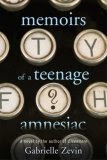 HF: Congratulations on your newest book, Memoirs of a Teenage Amnesiac! Please tell us about it.
HF: Congratulations on your newest book, Memoirs of a Teenage Amnesiac! Please tell us about it.
GZ: Thanks so much. Conveniently enough, the premise is in the title: a sixteen year old girl falls down a flight of stairs and loses four years of memories. Thematically, MEMOIRS OF A TEENAGE AMNESIAC is about how a person in the process of defining herself would define herself in the absence of memory, and it’s about what the people we choose to love reveal about ourselves, and finally, it’s about which parts of a person are truly, truly constant. As a writer, the challenge for me was telling a story with a narrator who was never completely sure of the story she was telling.
HF: You have such a unique view of things. In Margarettown, a woman has, quite literally, multiple personas. Elsewhere features a 15-year-old girl who dies, goes to "Heaven," ages backwards, and is then reborn. And in your new book, your main character falls and bumps her head and forgets the last 4 years of her life, although no one can figure out why. How do you get such imaginative ideas?
GZ: I think my books tend to come from a question I’m asking myself at the time. When I was writing ELSEWHERE, I was living in NYC, September 11th had happened, and my dog got Cancer. The question I was asking was, how do you embrace life when it is filled with so much loss? With MARGARETTOWN, my best friend was getting married and I had just crossed ten years with the man in my life, so the question on my mind was: what does it take to really and truly love another person over many years? More than anything, MEMOIRS probably came from my grandmother having Alzheimer’s disease, and the question I found myself asking was: is a person more than just his/her memories and experiences? Writing books is a sort of cheap therapy for me.
HF: All your books have such interesting messages. Do you always try to send a message with your work or are you really just trying to tell a story?
GZ: On the one hand, I think there is very little point to writing novels if there is no message. On the other, I’m suspicious of authors who talk too much about message because I really believe that novels ought to be entertaining, shocking and old-fashioned as that may seem. The other problem with worrying too much over message is that the message the reader receives can be completely different from the one the author intends. A syndicated review of MARGARETTOWN which ran in one-hundred or so newspapers in the UK said something like “Gabrielle Zevin thinks that all women are crazy people who will ultimately be abandoned.” And, well, no, I don’t think that at all. As a writer, I try to serve the characters first – I think if I’m doing that well, the message and the story will take care of themselves.
HF: All your female protagonists, the various Margarets, Liz, and Naomi, have such unique and truthful voices. Do you find it easy to write with the voice of a teenager and make it so honest?
GZ: Thank you. I wouldn’t say I find it difficult now, but when I was younger, I found it very difficult to be honest with myself. It wasn’t until I was able to start seeing myself in a real way that I was able to start writing people that were at all real or for that matter, at all interesting.
HF: Which character, from all your books, are you the most like and how?
GZ: I don’t really find myself to be like any of them particularly, though there are bits of me in all of them. In MARGARETTOWN, Jane’s college years were largely based on my own – the sleeping in, the failed literary efforts, all of it. Lucy the pug from ELSEWHERE is most like me in terms of my views on the afterlife -- she’s a skeptic and doesn’t care if there’s a heaven or a hell so long as it has naps and food and the people she loves. In my most recent book, I am probably most like Graham the writer – I, too, have been known to stay up all night watching bad TV when I’m meant to be writing.
HF: What are a few of the challenges in starting a novel? What is your writing process like? Do you start with an outline or do you just start typing and see where it leads you?
GZ: The biggest challenge for me is committing to an idea. I have a million ideas and frankly, I’m a huge idea slut – by which I mean, as soon as I’ve begun developing one idea, the next one starts looking awfully sexy to me. Another challenge is clearing my head of all the crap – the endless speculation of what everyone (my agents, my editor, the marketing department, reviewers, random people on the internet) will say.
My writing process is very slow at the beginning and then increasingly speedy, thank God. I probably write as much in the last week of writing a book as I’ve written in the first two months.
On occasion, I have been known to start typing… but I always ultimately end up outlining. And frankly, very little of my pre-outline typing ends up in the books. That initial typing, if there is any, is more about unfocused experimentation: developing the characters, the setting, what the style of the prose will be like, etc. But back to outlines – mine are incredibly detailed and have bits of prose in them and doodles and are usually much more ambitious than the book that results.
HF: You started out as a screenwriter. How difficult was it to make that transition between such different forms of writing? Does the writing come easy for you? Does it flow smoothly or do you struggle with it?
GZ: Not as difficult as you might think. As a writer, I’m interested in experimenting with forms. Some things are screenplays and other things are books, and they usually reveal which they’re going to be quite early on. I like writing screenplays because they are so formally defined – 90-110 pages, three acts, lots of external action. I like writing books because you have the opportunity to delve into the inner life of a character in a way that you can’t when you’re writing a screenplay. I actually welcome working in different mediums because that can be a way of opening myself up creatively.
HF: Since you have also written screenplays, what are some of your favorite films, and what makes them unforgettable to you?
GZ: The list is always changing. This summer alone I saw three films which really moved me: ONCE, WAITRESS, and LA VIE EN ROSE. I’m also obsessed with the TV show FLIGHT OF THE CONCHORDS right now.
I love all sorts of movies, but I suppose the ones I love the best have an element of quirky romance to them: TRULY MADLY DEEPLY, TRUST, HAROLD AND MAUDE, HANNAH AND HER SISTERS, SECRETARY, GROUNDHOG DAY, THE JERK, WALKING AND TALKING, BEING JOHN MALKOVICH, THE GOOD GIRL, BEING THERE, RUSHMORE, etc. I was just re-watching Mike Nichols’ HEARTBURN on DVD, and I found it to be really beautiful and true. When I was a kid, boy did I love ICE CASTLES. The one with the blind figure skater? Sigh…
And, of course, I must mention the film my partner directed entitled CONVERSATIONS WITH OTHER WOMEN with Helena Bonham Carter and Aaron Eckhart. I wrote it, but the thing I love most in it has nothing to do with my writing – it has the most romantic and sweet sex scene you’ll ever see.
Actually, I probably watch more documentaries than anything else. I like seeing peoples’ “real” lives. In terms of my writing, watching documentaries is a way to remind myself just how complex and strange and wonderful people truly are. And they introduce me to people I wouldn’t otherwise meet. With that in mind, my favorite doc is probably Ross McElwee’s SHERMAN’S MARCH or maybe, GREY GARDENS. I recently liked WHO THE F*CK IS JACKSON POLLOCK?
HF: Growing up, were you encouraged to read, write and express yourself creatively? Who were the major influences in your childhood? What did you read as a child?GZ: Yes, I was very much encouraged to be creative though I don’t necessarily think my parents would have minded if I’d announced my intention to be, say, a doctor, and a writer on the side. This notwithstanding, both my parents were very creative – they were always painting and reading and crafting, and our house was really just filled with books and music. We went to the library religiously. And we saw pretty much every foreign film that came to town. So, I’m sure all this influenced me. Other influences? The fact that I am an only child – you get very creative when you only have yourself as playmate. And the fact that I am of an ethnically mixed background. I was the only 1/2 Asian, 1/2 Russian Jew in Boca Raton, FL (and in Chappaqua, NY and in Cambridge, MA) – like many writers, I became familiar early on with that outsider perspective.
As a child, I read everything – no distinction was made between “children’s” and “adult” OR “classic” and “commercial” OR “literary” and “genre”. I think one of the best things my parents ever did for me was not censoring anything. I read HOLLYWOOD WIVES one week; MY ANTONIA, the next. As a girl, my favorite book was probably ANNE OF GREEN GABLES. And, as a teen, I loved INVISIBLE MAN by Ralph Ellison. I think loving a book has a lot to do with the moment of exposure. If I had read either at a slightly different time, my experience of them might have been very different. And it says something about the power of books that my background is not in the least like Anne Shirley’s or the narrator’s (from INVISIBLE MAN)… but I felt like both authors were speaking directly to me.
HF: What writers have influenced your work the most? What is it about those particular writers that you admire?GZ: I don’t know about influenced, but the books I go back to most often are probably LOLITA, THE GREAT GATSBY, and THE CATCHER IN THE RYE. Pedestrian choices, I suspect, but I learn something every time I read them. And in fact, the reason I go back to them is to learn something. I also tend to gravitate toward certain books when I’m working. For example, when I was writing MARGARETTOWN, I was sort of obsessed with LOVE IN THE TIME OF CHOLERA and THE UNBEARABLE LIGHTNESS OF BEING. With ELSEWHERE, I was drawn to CHARLOTTE’S WEB. With my new book, I went through a mad YA (Young Adult) and memoir reading streak.
A writer I admire who has fallen out of fashion a bit is Booth Tarkington – ALICE ADAMS is one of the most feminist books I’ve ever read, and I love THE MAGNIFICENT AMBERSONS, too. What I admire about any writer is an inimitable voice, wit, and the ability to manage plot in a way that is both surprising and inevitable. The older I get, the more I value humor, too.
HF: Do you read a lot? Do you read mostly contemporary books, classics, or a mix?GZ: I do read a lot, but not as much as I’d like to actually. When I’m working, I tend to only want to read what I’ve read before. Of books I’ve read recently, I was completely blown away by THEN WE CAME TO THE END by Joshua Ferris. I was equally blown away by TRISTAM SHANDY and amazed that I could have gone so long without reading it. Oh, and I also just read a thoroughly adorable book about drama camp called DRAMARAMA by E. Lockhart.
HF: What are you working on now? Do you have plans for another novel, or screenplay, or something entirely different?
GZ: I’m finishing another novel. It’s about a twenty-four year old female soldier, and it’s an entirely new direction for me.
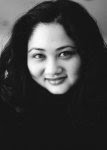 You can view Gabrielle's website here: http://memoirsofa.com
You can view Gabrielle's website here: http://memoirsofa.com
Heather wishes to thank Gabrielle Zevin for her time and thoughtful answers.







